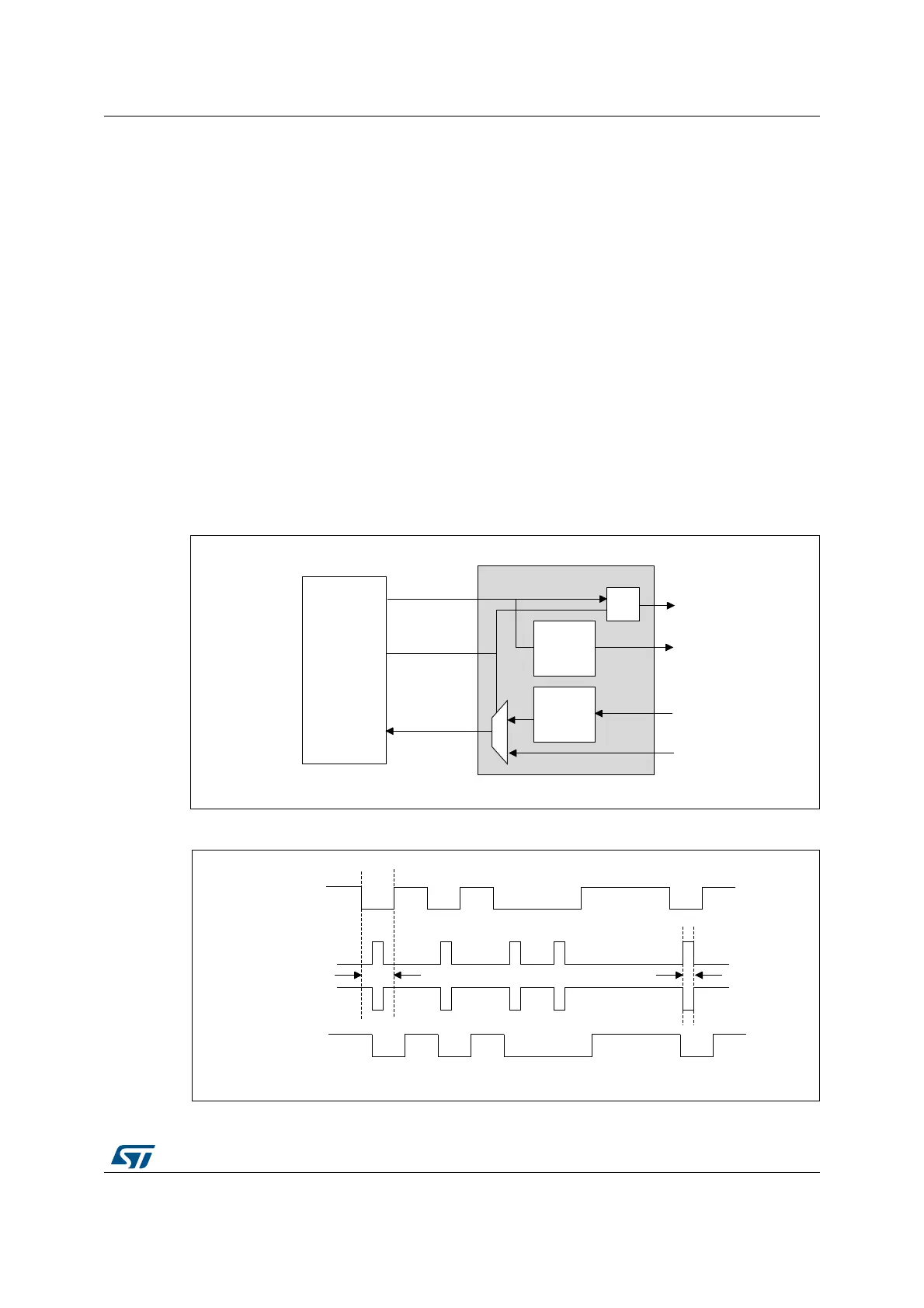RM0033 Rev 9 663/1381
RM0033 Universal synchronous asynchronous receiver transmitter (USART)
681
IrDA low-power mode
Transmitter:
In low-power mode the pulse width is not maintained at 3/16 of the bit period. Instead, the
width of the pulse is 3 times the low-power baud rate which can be a minimum of 1.42 MHz.
Generally this value is 1.8432 MHz (1.42 MHz < PSC< 2.12 MHz). A low-power mode
programmable divisor divides the system clock to achieve this value.
Receiver:
Receiving in low-power mode is similar to receiving in normal mode. For glitch detection the
USART should discard pulses of duration shorter than 1/PSC. A valid low is accepted only if
its duration is greater than 2 periods of the IrDA low-power Baud clock (PSC value in
USART_GTPR).
Note: A pulse of width less than two and greater than one PSC period(s) may or may not be
rejected.
The receiver set up time should be managed by software. The IrDA physical layer
specification specifies a minimum of 10 ms delay between transmission and reception (IrDA
is a half duplex protocol).
Figure 240. IrDA SIR ENDEC- block diagram
Figure 241. IrDA data modulation (3/16) -Normal mode
SIREN
MSv31164V2
USART
OR
SIR
Transmit
Encoder
SIR
Receive
DEcoder
TX
RX
USART_RX
IrDA_IN
IrDA_OUT
USART_TX
MSv31165V1
TX
Start
bit
0101001101
Stop
bit
Bit period
IrDA_OUT
IrDA_IN
RX
3/16
0101 001101

